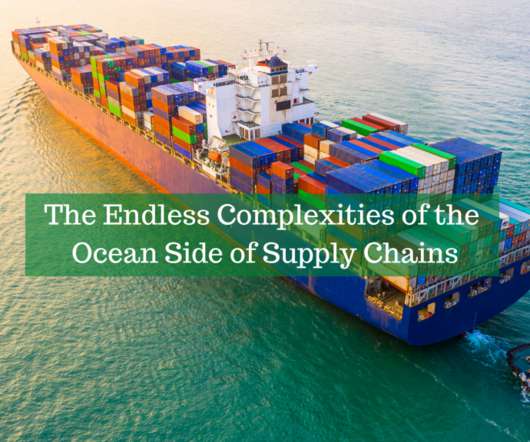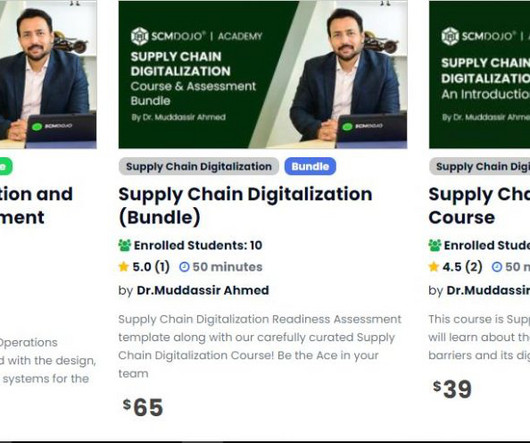The Endless Complexities of the Ocean side of Supply Chains
SCMDOJO
MAY 13, 2022
Nearly all goods, bulk, and liquid as well as more obvious commodities, are capable of being transported by this method, whilst specialized containers and new fittings are frequently introduced to an already sophisticated market. Lauritzen Chile S.A. Supply Chain KPI Dashboard. Arviem AG, Culinary Foods SpA, Falabella Retail S.A.,
















Let's personalize your content